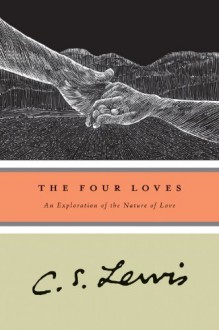"We need others physically, emotionally, intellectually; we need them if we are to know anything, even ourselves." We hear often that love is patient and kind, not envious or prideful. We hear that human love is a reflection of divine love. We hear that God is love. But how do we understand its...
show more
"We need others physically, emotionally, intellectually; we need them if we are to know anything, even ourselves." We hear often that love is patient and kind, not envious or prideful. We hear that human love is a reflection of divine love. We hear that God is love. But how do we understand its work in our lives, its perils and rewards? Here, the incomparable C. S. Lewis examines human love in four forms: affection, the most basic, general, and emotive; friendship, the most rare, least jealous, and, in being freely chosen, perhaps the most profound; Eros, passionate love that can run counter to happiness and poses real danger; charity, the greatest, most spiritual, and least selfish. Proper love is a risk, but to bar oneself from it--to deny love--is a damning choice. Love is a need and a gift; love brings joy and laughter. We must seek to be awakened and so to find an Appreciative love through which "all things are possible." "The Four Loves deserves to become a minor classic as a modern mirror of our souls, a mirror of the virtues and failings of human loving." —New York Times Book Review "Lewis has a keen eye, a large measure of human sympathy, wit, and a command of simple words." —Times Literary Supplement C. S. (Clive Staples) Lewis (1898-1963), one of the great writers of the twentieth century, also continues to be one of our most influential Christian thinkers. He wrote more than thirty books, both popular and scholarly, including The Chronicles of Narnia series, The Screwtape Letters, The Four Loves, Mere Christianity, and Surprised by Joy.
show less

